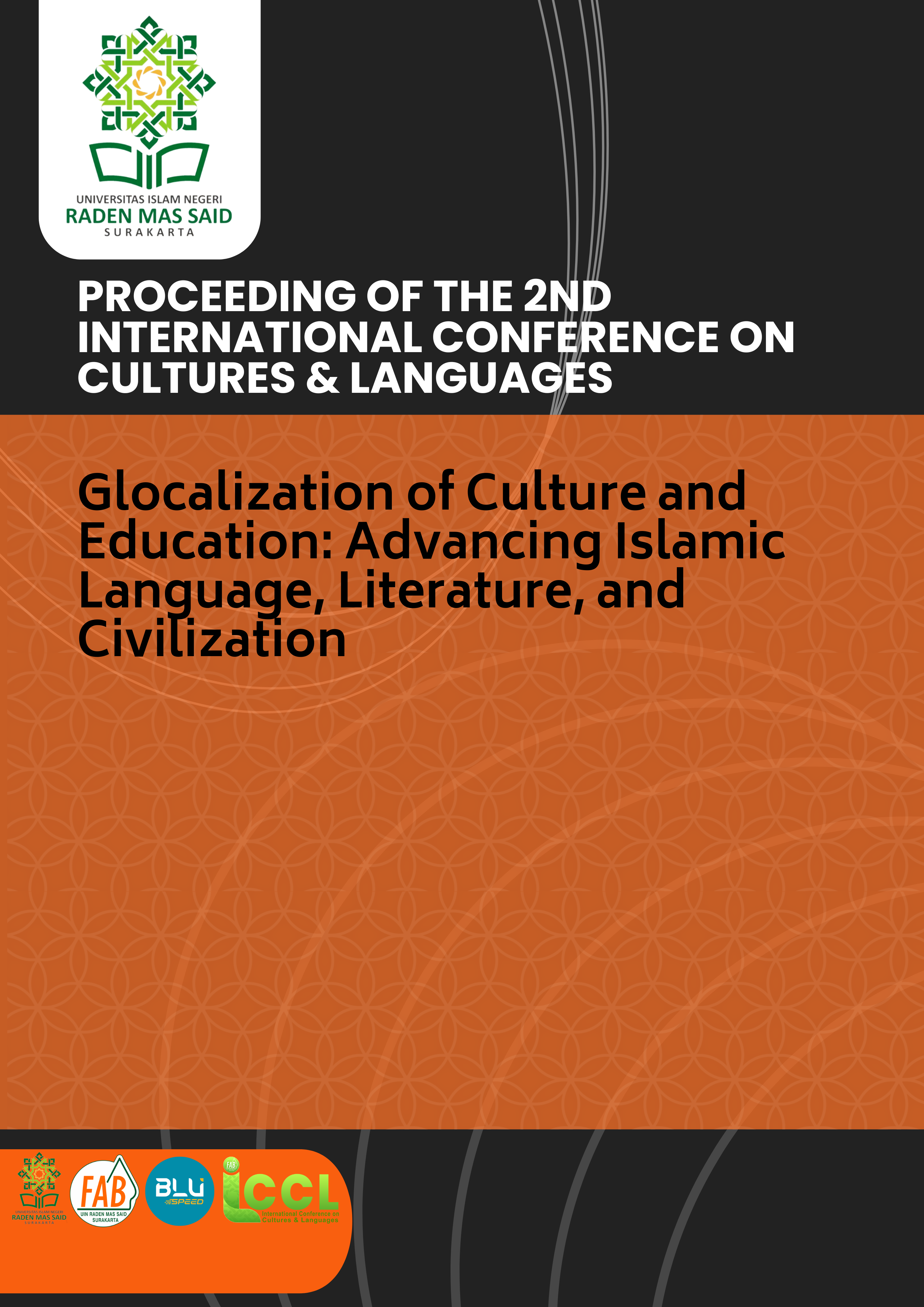GLOCALIZATION IN TEACHING INDONESIAN FOR FOREIGN SPEAKERS (BIPA) AT UIN RADEN MAS SAID SURAKARTA: INTEGRATION OF ISLAMIC-BASED CULTURE
DOI:
https://doi.org/10.22515/iccl.v2i1.9595Keywords:
Glocalization, BIPA, Culture, IslamicAbstract
The teaching process of Indonesian for Foreign Speakers (BIPA) at UIN Raden Mas Said Surakarta combines aspects of culture and Islamic values that are typical of Surakarta. This study explores the concept of glocalization in the context of BIPA education at UIN Raden Mas Said Surakarta, with a special focus on the integration of Islamic-based culture in the curriculum and teaching methods. Through case study approach and SLR (Systematic Literature Review). This research identifies effective glocalization strategies and approaches in Surakarta's local culture and Islamic values into Indonesian teaching. This strategy includes adjusting learning materials, using contextual teaching methods, and integrating learning resources based on culture and Islamic values, especially in Surakarta. The results showed that a glocalization approach that focuses on Islamic culture and values can increase students' understanding and appreciation of local cultural Indonesian and values. The implications of this research provide practical guidance for BIPA educators at UIN Raden Mas Said Surakarta in designing programs that are not only effective in teaching Indonesian, but also promote cultural understanding and practice with deeper nuances of Islamic values in Surakarta.


